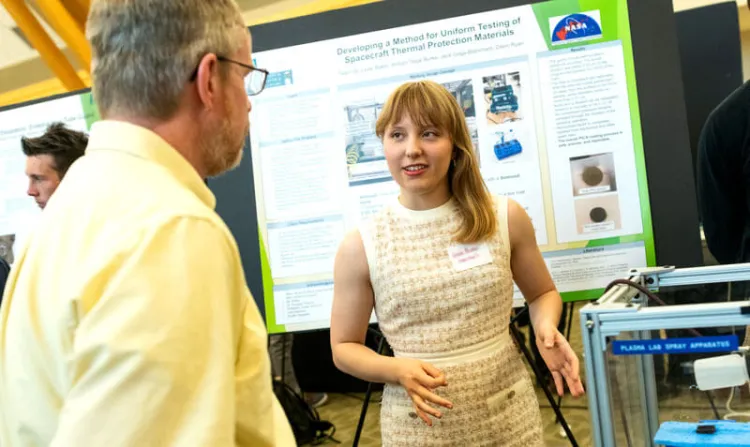
The ability to design, produce, sell and service quality products in today's marketplace requires managers who understand engineering principles as well as possess the skills to manage technical projects and professionals.
The Engineering Management program is designed to give undergraduates a solid engineering base coupled with a business preparation that will enable them to fill dynamic managerial roles in technical industries.
Jointly sponsored by the College of Engineering and Mathematical Sciences (CEMS) and the Grossman School of Business, the Engineering Management program draws on a broad range of faculty expertise and study opportunities.
Career Opportunities
Graduates of our Engineering Management program find rewarding opportunities in a wide variety of positions, including consulting, systems design, production supervision, project management, process engineering, quality assurance, technical sales, production planning and control, systems analysis, and inventory management.
Companies hiring UVM graduates in recent years include IBM, General Dynamics, United Parcel, Champlain Cable, Green Mountain Coffee Roasters, Energizer, Boston Scientific, Kellogg Co., SolarWorks, Pizzagalli Construction, Utility Risk Management, GeneSic, Pratt & Whitney, and Raytheon.
Our Program
Throughout the curriculum, students learn to apply engineering and business principles to immediate and evolving 21st century problems in manufacturing and service organizations. They develop a foundation to successfully manage people, systems and projects. They also develop an area of emphasis by choosing Mechanical, Civil, or Electrical Engineering in which to concentrate.
Contact: Keith Doyle - keith.doyle@uvm.edu
Hands-on Learning
In the senior year of the program, each student is required to complete a senior design project design in which they work with a company to design a solution to an engineering management problem. Past project titles include: Research and Evaluation of the Optimal Disposition Numbers Regarding the Article Group Steinothan 120 for the German Company Steinbacher Dämmstoffe GmbH; Ways of Increasing and Maintaining On-Time Delivery Performance at Champlain Cable Corporation; Study Into Internal Production of Ice Cream Base at the Lake Champlain Chocolate Company; Operations Consolidation at Lake Champlain Chocolates; and Quality Assurance Program Compliance Review at the Federal Highway Administration.
Learn more about our B.S. in Engineering Management degree program